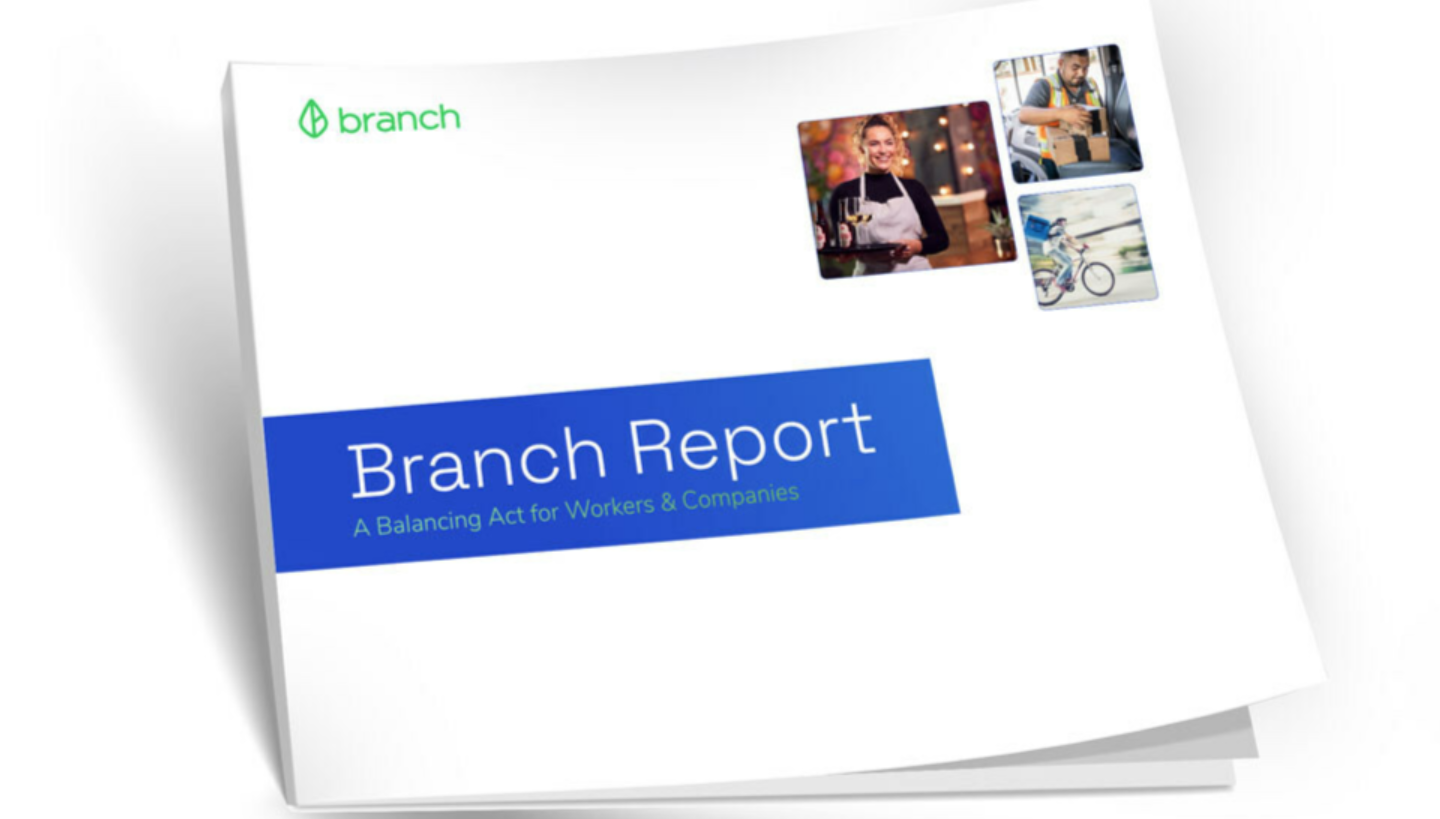Flexibility is Paramount, Particularly for ParentsEspecially in the gig economy era, greater flexibility and control over when they worked (39%) rounded out the top three elements workers want from their jobs—overtaking last year's third top pick, a positive work culture (36%). Flexibility also plays a key role for hourly workers with children, with 57% of respondents reporting that reliable childcare impacts their ability to work or pick up more hours. For Gen Z and Millennials, this statistic increases to 66%, with 39% noting it greatly impacts their ability.
"Over the course of the Branch Report, flexibility has become increasingly important to attract and retain hourly workers," said
Atif Siddiqi, Founder and CEO of Branch. "As the workforce continues to welcome new generations, this need is only going to grow, whether that's offering flexibility in how they pick up work or receive their earnings."
Tis the Season…of Higher Costs, More ShiftsAs costs continue to rise, hourly workers cite home/rent affordability as their top financial concern (62%), while over 70% reported that their home costs have increased in the past year. Groceries were their second highest financial concern (56%) and the top expense impacted by inflation (84%).
Because of these challenges, 90% of respondents say receiving pay before their official payday is helpful. To support additional costs from the impending holiday season, over 80% are planning to pick up more work. Most will plan to pick up hours at their current job (62%), with another part-time job (49%), or gig/freelance work (38%).
Additional findings include:
Benefits, Bonuses, and BurnoutTop goals for hourly workers at their current employer were focused on financial and career growth: higher wages (35%), a promotion (17%), and financial stability (16%). As they seek higher pay from their employers, one in four hourly workers are supplementing their income with gig work.
When asked about the benefits they were most interested in, respondents overwhelmingly cited bonus pay, followed by paid/sick time off, and flexible scheduling:
- Bonus pay - 73%
- Paid/sick time off - 63%
- Flexible scheduling - 46%
- On-demand/faster pay - 31%
- Career development/training - 26%
Over half of respondents have experienced burnout in the last year (57%), with the vast majority of workers feeling like their workplace is understaffed (76%). Luckily, 55% of hourly workers feel like their workplace supports their mental health.
Top Financial Goals: Home & Car Ownership, Emergency Fund
Hourly workers prioritize home costs and ownership when setting their financial goals and addressing their top financial concerns. Home costs increased for 75% of hourly workers this year, which is why they cited home/rent affordability (62%) as their top financial concern, followed by groceries (56%), and utility bills (54%). Inflation has exacerbated their living costs, with respondents citing groceries (84%), gas (63%), and housing (43%) as the personal expenses most impacted by inflation.
Despite rising home prices, purchasing a home (56%) was respondents' top financial goal, followed by paying off a car (48%), and creating an emergency fund (45%).
Hourly Workers' Top Financial Goals
- Purchasing a home/paying off a mortgage - 56%
- Purchasing a car/paying off a car loan - 48%
- Creating an emergency fund - 45%
- Improving credit score - 37%
- Saving for retirement - 30%
Top financial goals vary by generation. Home ownership ranked as the top financial goal for Millennial (60%) and Gen X (50%) hourly workers. For Gen Z, owning a car (57%) edged out owning a home (55%) as their top goal. For Baby Boomers, their top goal is creating an emergency fund (54%), closely followed by saving enough for retirement (52%), and purchasing/paying off a car loan (41%).
Creating an emergency fund is an understandably crucial goal given the state of hourly workers' emergency savings. On par with last year, 83% have less than
$500 saved for an emergency, with 50% having
$0 saved. But some generations are further ahead than others. Saving at similar rates as Baby Boomers, Gen Z had more emergency savings compared to their Millennial and Gen X counterparts: 63% of Gen Z hourly workers had some sort of emergency savings compared to Millennials and Gen X (45%). Gen Z only had 37% with
$0 saved, compared to Millennials and Gen X, with 55% of respondents of those generations having
$0 saved.
What Workers Want: Cashless Payments, More Frequently
Hourly workers have embraced the cashless movement, with 89% preferring cashless payment methods. Debit cards (71%) were overwhelmingly their preferred mode of payment, with cash (10%) and credit card (8%) trailing behind.
When it comes to pay frequency, nearly 90% prefer to have their pay more frequently than bi-weekly, with 45% saying they prefer to be paid at least weekly and 30% at least daily.
For more findings or to download a copy of the report, visit:
https://www.branchapp.com/branchreport.
